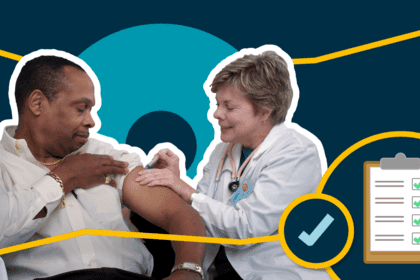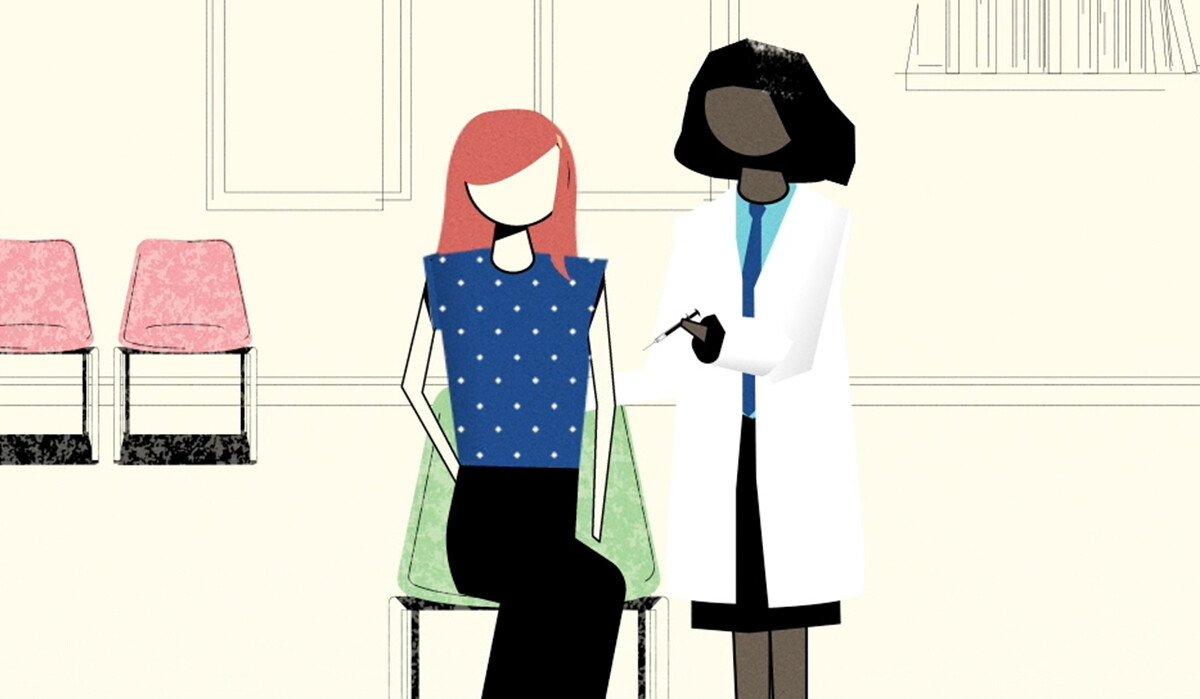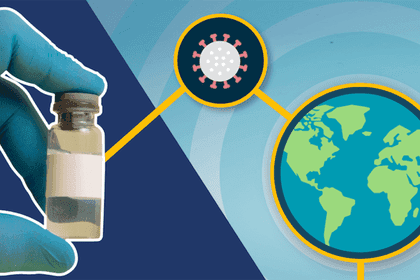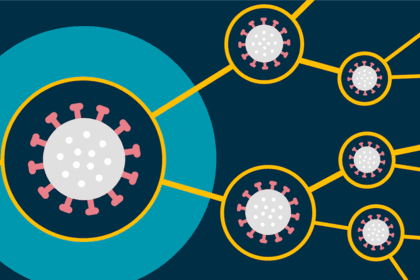
What are human infection studies and why do we need them?
Human infection studies (also known as human challenge trials and controlled human infection models) have the power to rapidly accelerate the development of much-needed vaccines and treatments, including for Covid-19.

Curveball Media
What are human infection studies?
Human infection studies are clinical trials that involve deliberately exposing volunteers to infectious diseases.
The results can help researchers to:
- understand more about how the body’s immune system responds to a disease
- work out how to prevent the disease or improve its treatment
- test the effectiveness of potential new vaccines and treatments
- monitor the performance of approved vaccines and treatments in the real world.
How do human infection studies work?
Researchers recruit a group of healthy adult volunteers to take part. They give an in-depth explanation of the process and the risks involved, and they monitor the volunteers’ health throughout the study.
The study could involve testing:
- vaccines – doctors give the volunteers a dose of the vaccine, then administer a controlled dose of the relevant challenge agent, for example a virus
- treatments – doctors administer the challenge agent, then give volunteers a treatment.
There are strict guidelines in place to protect the people taking part, and they are financially reimbursed for their time.
If volunteers get ill, help is close at hand. Doctors can give them existing treatments that are known to work, and provide other care as needed. If they don’t become ill, it means the vaccine or treatment works.
Will Covid-19 human infection studies be different?
The process of setting up a human infection study is long and rigorous – taking up to a year and involving many stages to meet high safety and ethical standards. Several key things need to be in place before they can begin, including the development of a suitable challenge agent (which is the dose of the virus that is given to volunteers), volunteer recruitment, site preparation, and having an effective treatment that is known to work. A Covid-19 human infection study will follow a similar process, but there will be some differences.
Given that current treatment options for Covid-19 are limited, it is important that volunteers are recruited from the lowest-risk groups and are closely monitored throughout the course of the study. The World Health Organization has published ethical guidelines for how studies should be set up and run.
For example, volunteers should not include people:
- over the age of 30
- with pre-existing health conditions (like diabetes)
- with respiratory problems.
Covid-19 studies are also only likely to take place in high-income settings – like the UK and the US – where facilities can meet the stricter quarantine standards required. Dedicated quarantine facilities will need to be upgraded for Covid-19 studies, for example to allow for controlled airflow. Suitable Covid-19 quarantine facilities will usually be isolation wards attached to hospitals.
Volunteers normally take part in human infection studies for around 15 days. This will be the same for Covid-19 studies, but the follow-up, at least for the first few studies, will be much longer to gain information on the duration of antibody response and to confirm there are no long-term side effects.
Traditionally, studies involve volunteers who have no antibodies to the pathogen they are going to be infected with. However, Covid-19 studies may also include volunteers who have already had the disease and have a small level of antibodies, to look at how long immunity against re-infection lasts.
Pressing play on the video above will set a third-party cookie. Please read our cookie policy for more information.
Dr Zeb Jamrozik: Human infection studies are a type of research that involve the deliberate infection of volunteers. Human infection studies allow scientists to monitor an infection from the very moment it begins and to know when that infection happens and to make especially detailed measurements of the immune response to that infection.
Professor Rodrigo Correa Oliveira: The researcher infects a human with different pathogens. This infection is under well-controlled conditions but it gives us enormous opportunities to understand how the pathogen interacts with a human and how you can actually work on the process of identifying, for example a vaccine, a drug or develop a new diagnostic tool.
Why use them for Covid-19?
Professor Gagandeep Kang: The argument is that if we can use human infection studies, it may be possible for us to develop vaccines faster. When we have over 200 candidates, it isn't possible for us to take those 200 candidates through clinical testing. It would be a very expensive exercise to do human testing for all of the candidates. So if we wanted to down-select vaccines – select only those that have the best chance of success – then we could potentially do that in human infection studies.
Professor Anna Durbin: We can also use a Covid-19 human challenge model to try to find that part of the immune system that may be protected. We could also use these challenge models to try to look at transmission of Covid-19, something that has been difficult to do during the current pandemic.
What needs to happen before they can be started?
Dr Zeb Jamrozik: Every time we do research especially research that places a lot of demands on research participants, we need to be careful that the likely scientific benefits or public health benefits outweigh the risks of the research and in the case of Covid-19 vaccines, those risks and benefits might be changing all the time as we learn about vaccines in other types of research as we learn more about risks and so it's very important that the risk-benefit assessment to ensure that benefits outweigh risks is done very systematically for this disease and in a very up-to-date fashion before the research starts.
Professor Gagandeep Kang: We need to make sure that when we select participants, we select the ones who are in the safest possible age groups. Right now, it's looking like younger people are more likely to be good volunteers. In addition to that, you have to make sure that you have experienced sites and investigators so that people get the best care possible while they are in these studies.
Professor Anna Durbin: We would like to have what we call rescue therapy, or a drug that we can give that can stop the progression of Covid-19 illness. We also have to identify suitable facilities where these studies could be done. We would want to make sure that if a Covid-19 human infection model were to be done, the facility could ensure that isolation rooms were available with proper airflow, that staff had proper PPE, that all of the medical support that's necessary should a patient or should a volunteer become quite ill with Covid-19, all of the necessary medical support were there to treat them.
When and where might we expect these studies to take place?
Professor Rodrigo Correa Oliveira: So human infection studies for Covid-19 vaccine development should be done now, I think this is the right time. The right time because I think that we need this very fast. We know that the situation worldwide is not good, we need to actually eliminate this virus as soon as possible and the best way to do it is by doing the human infection studies.
Professor Anna Durbin: There are some high-level containment units around the world that have been built especially to treat patients that have highly contagious diseases, like Covid-19. For a large vaccine study using a Covid-19 human challenge model, for instance
When will Covid-19 human infection studies begin?
The first ever Covid-19 human infection study will take place in the UK, after receiving ethics approval in February 2021. The study will recruit 90 people aged 18-30.
First, a Covid-19 dose escalation study will confirm the optimal dose of the virus (or challenge agent) that needs to be given to volunteers to cause a mild infection. If successful, and the study design gets regulatory approval, vaccine trials are expected to begin in mid to late 2021.
The study will be delivered by the UK government's Vaccines Taskforce, Imperial College London, the Royal Free London NHS Foundation Trust and hVIVO.
How Wellcome is supporting human infection studies
Wellcome has committed to spending £15 million over the next two years to support Covid-19 human infection studies in the UK and globally.
This includes:
- supporting a dose escalation study by the University of Oxford to understand more about immunity in individuals who have already had Covid-19
- developing a new challenge agent based on a variant of concern, in partnership with Imperial College London and hVIVO
- supporting the development of the World Health Organization ethics framework for Covid-19 human infection studies, to ensure the studies are done as safely as possible
- talking with regulators and researchers working on Covid-19 human infection studies, in partnership with Boyd, to understand more about the regulatory barriers to setting up studies, and how evidence and data could be used more effectively.
In addition to our Covid-19 work, we are currently funding eight human infection studies in Asia, Africa and South America, covering a variety of diseases.
How can human infection studies help to develop new vaccines and treatments?
Human infection studies have the potential to make vaccine and treatment trials faster, cheaper and more effective. Just as we need multiple options to tackle diseases, we need multiple options for how we conduct trials.
Because the studies use humans in preliminary testing, they give a much earlier indication of whether a vaccine or treatment will work. This could be of particular use for a Covid-19 vaccine, where there are more than 320 possible vaccine candidates in development, using a wide variety of methods and technologies. A Covid-19 study could help us to narrow down the field of potential candidates much faster than through traditional clinical trials.
The studies complement Phase III clinical trials – which require thousands of participants who are infected naturally with a disease – particularly if these trials take longer to deliver than planned.
For example, if Covid-19 starts to decline around the world, the number of people naturally infected will decrease which could prove problematic for clinical trials. Human infection studies use far fewer people than Phase III studies to test vaccines and treatments on in a safe and controlled environment.
Another benefit is that the studies produce highly-detailed information. They are performed under controlled conditions, so the timing of infection and the dose of the challenge agent given is known. The volunteer’s health is monitored to see how the disease is progressing and how their body is responding to the treatment or vaccine being tested.
Pressing play on the video above will set a third-party cookie. Please read our cookie policy for more information.
Our animation explains what human infection studies are and why they're important.
Why do we need Covid-19 human infection studies if we already have successful vaccines?
Although developing successful vaccines is a huge step forwards towards ending the pandemic they are not a silver bullet, especially in the face of new variants.
We will need to keep learning more about the virus, as well as monitoring the performance of approved vaccines and treatments in the real world (also known as phase IV studies), and developing new ones.
Human infection studies can help us:
- better understand how long immunity lasts for, and the impact of different Covid-19 strains on our immune system
- test whether approved vaccines and treatments are effective against new strains
- look at the effectiveness of approved vaccines and treatments across different population groups or geographical areas
- develop and test second and third generation vaccines more quickly – this will be especially useful if natural levels of infection are waning, making phase III trials more difficult
- develop and test new treatments.
What successful human infection studies have there been?
There have been many successes using human infection studies. A key achievement is the development of the typhoid conjugate vaccine Vi-TT (Vi-tetanus toxoid conjugate vaccine).
During testing in humans, the vaccine showed efficacy of 87.1%. As a result, the World Health Organization recommended it as the preferred vaccine for all ages.
Can the studies be used to develop vaccines and treatments for all diseases?
No, but they have a very wide application. Human infection studies are currently being used to develop vaccines and treatments for diseases such as malaria, typhoid, influenza and dengue.
They are most appropriate for diseases where no suitable animal models exist, for example where the infection in the animal model does not mirror the infection in humans. They are usually only used when there’s already some form of treatment for the disease.
We’re funding research to better understand what causes and drives infectious diseases to escalate and the solutions to control their impact.
There are currently no open funding opportunities for Infectious Disease. Learn more about the funding we provide.
This explainer was originally published in December 2018.

